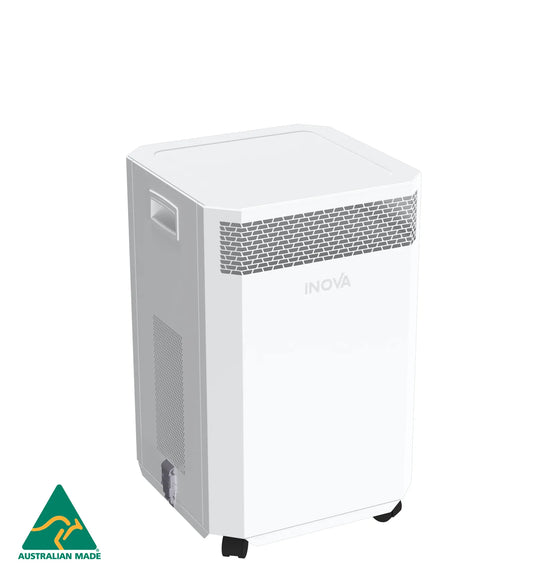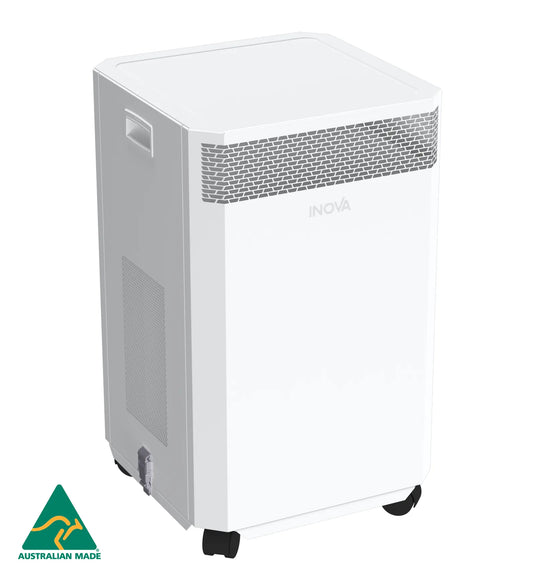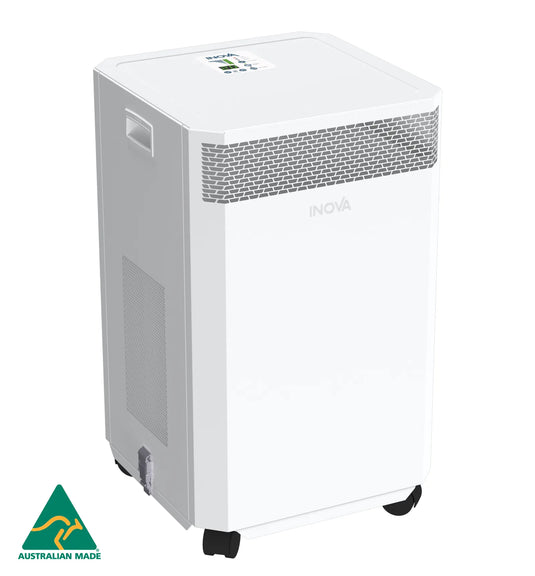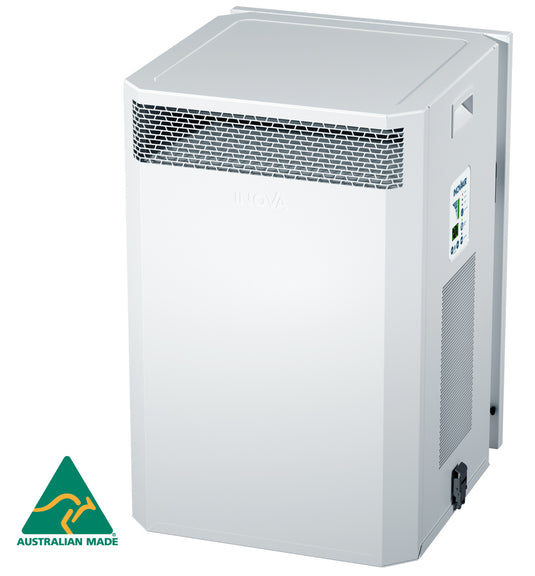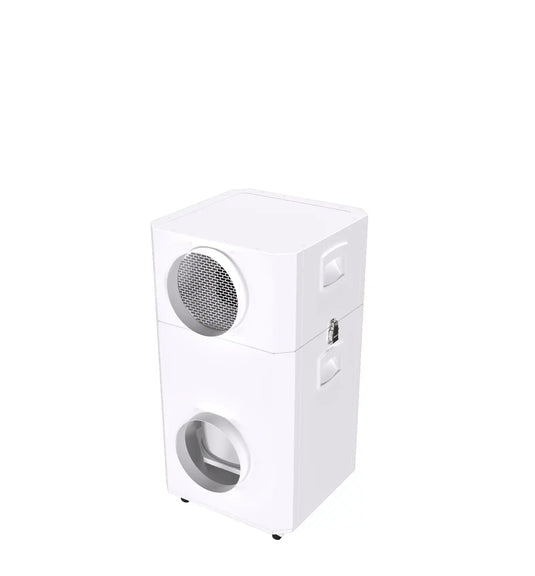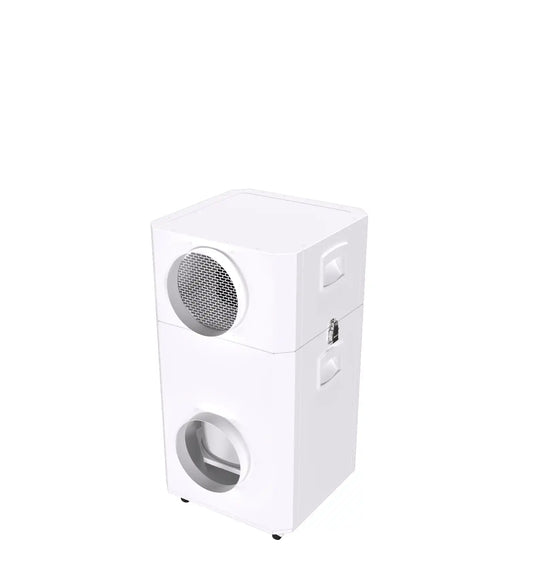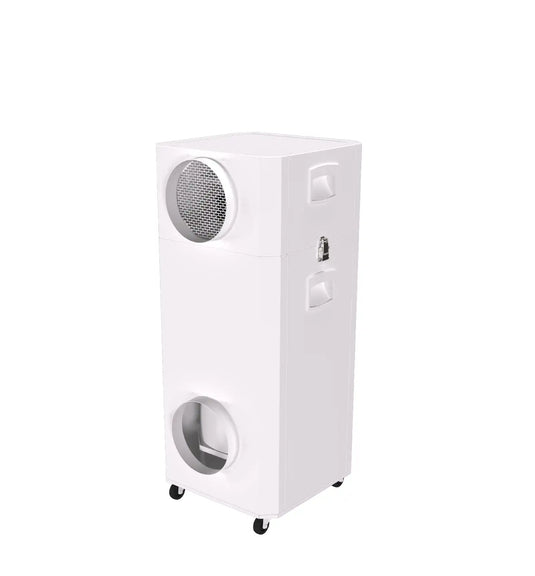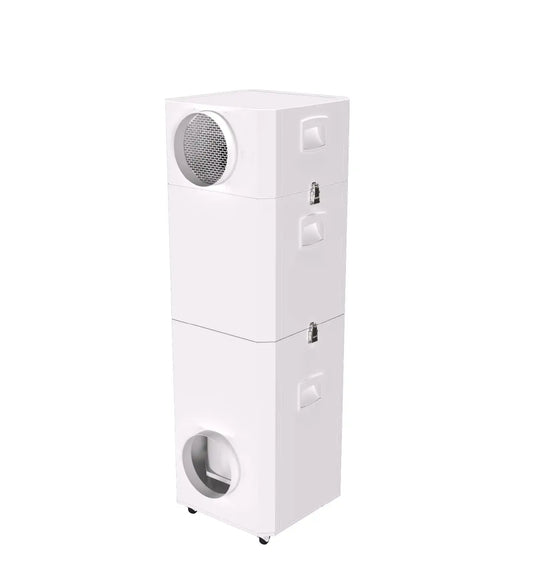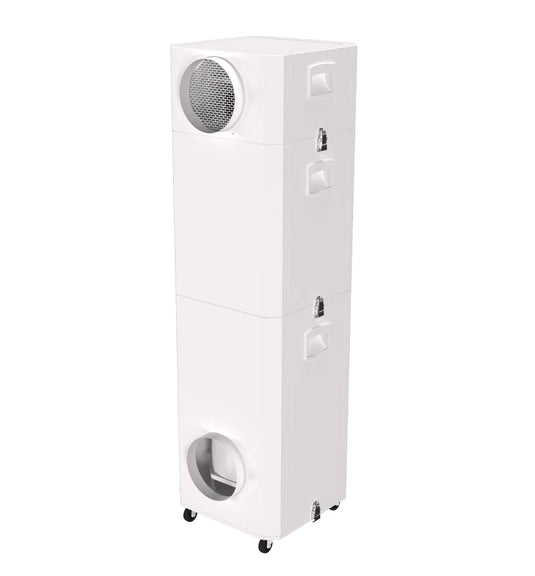Understanding How Particulate Matter Impacts Your Health.
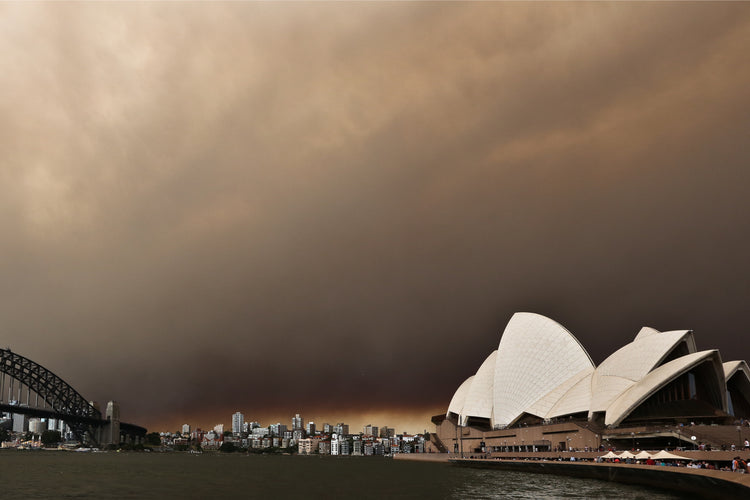
Particulate matter in the air is becoming more of a problem with the increasing prevalence and intensity of bushfires in Australia, which can lead to serious health issues.
Elevated levels of ultrafine airborne particle matter, known as PM2.5, from bushfires (and any other wood smoke) can be extremely harmful to your health. PM 2.5 particles are tiny particles that are small enough to enter your bloodstream and penetrate vital organs, including the brain.
At the time of writing this article, PM2.5 levels in Sydney are 30 times above the recommended maximum concentration levels.
Too small to be seen, PM 2.5 particles are half the size of most bacteria and smaller than some viruses. A thirtieth as wide as a hair.
The finer the particle the worse they are, because the more chance they have of getting into your lungs and bloodstream and causing blood clots and even heart attacks. PM2.5 particles are also present in the air even when there isn’t smoke, due to traffic pollution.
The World Health Organisation estimates that PM2.5 air pollution is responsible for 3% of deaths from heart disease and 5% of cancer of the trachea, bronchus and lung, and 1% of deaths from acute respiratory infections in children under age 5 worldwide.
Inhalation of PM2.5 particles when pregnant is also associated with low birth weight and high blood pressure in children. It can cause inflammation and oxidative stress, disrupt hormones, and impact the ability of oxygen to access the placenta.
PM2.5 also contributes to high plaque deposits in arteries and can lead to heart attacks and other heart problems. An increase in estimated annual exposure to PM2.5 has been found to increase the risk of heart attack by 13%
The Journal of the American Medical Association also found that death rates climb inexorably when particle pollution rises
You can minimise your exposure to particulate matter by wearing a mask when you’re outside, and staying indoors when the levels are high, with the doors and windows closed, and filter the air with an air purifier with a medical-grade HEPA filter and activated carbon filter.
For more tips on preventing smoke inhalation in your home, click here to view our article.
Elevated levels of ultrafine airborne particle matter, known as PM2.5, from bushfires (and any other wood smoke) can be extremely harmful to your health. PM 2.5 particles are tiny particles that are small enough to enter your bloodstream and penetrate vital organs, including the brain.
At the time of writing this article, PM2.5 levels in Sydney are 30 times above the recommended maximum concentration levels.
Too small to be seen, PM 2.5 particles are half the size of most bacteria and smaller than some viruses. A thirtieth as wide as a hair.
The finer the particle the worse they are, because the more chance they have of getting into your lungs and bloodstream and causing blood clots and even heart attacks. PM2.5 particles are also present in the air even when there isn’t smoke, due to traffic pollution.
The World Health Organisation estimates that PM2.5 air pollution is responsible for 3% of deaths from heart disease and 5% of cancer of the trachea, bronchus and lung, and 1% of deaths from acute respiratory infections in children under age 5 worldwide.
Inhalation of PM2.5 particles when pregnant is also associated with low birth weight and high blood pressure in children. It can cause inflammation and oxidative stress, disrupt hormones, and impact the ability of oxygen to access the placenta.
PM2.5 also contributes to high plaque deposits in arteries and can lead to heart attacks and other heart problems. An increase in estimated annual exposure to PM2.5 has been found to increase the risk of heart attack by 13%
The Journal of the American Medical Association also found that death rates climb inexorably when particle pollution rises
You can minimise your exposure to particulate matter by wearing a mask when you’re outside, and staying indoors when the levels are high, with the doors and windows closed, and filter the air with an air purifier with a medical-grade HEPA filter and activated carbon filter.
For more tips on preventing smoke inhalation in your home, click here to view our article.
INOVA Air Purifier Models
INOVA-E7 Air Purifier
Regular price
$745.00
Sale price
$745.00
Regular price
Unit price
/per
4.8 / 5.0
(268) 268 Translation missing: en.genaral.accessibility.total_reviews
Effective in areas up to 20m2.
The INOVA-E7 Air Purifier is perfect for bedrooms and small offices, providing efficient air purification in compact spaces. It features a light-duty activated carbo...
INOVA-E8 Air Purifier
Regular price
$875.00
Sale price
$875.00
Regular price
Unit price
/per
4.8 / 5.0
(1338) 1338 Translation missing: en.genaral.accessibility.total_reviews
Effective in areas up to 25m2.
Introducing the INOVA-E8: a powerful air purifier that delivers exceptional air quality. Equipped with an H13 medical-grade HEPA filter, it captures even the smalles...
INOVA-E20 Air Purifier
Regular price
$1,695.00
Sale price
$1,695.00
Regular price
Unit price
/per
4.8 / 5.0
(639) 639 Translation missing: en.genaral.accessibility.total_reviews
Effective in areas up to 100m2.
Meet the INOVA-E20 Air Purifier, delivering the highest level of air purification available for Australian homes...
INOVA-DE20 Air Purifier
Regular price
$1,895.00
Sale price
$1,895.00
Regular price
Unit price
/per
4.9 / 5.0
(608) 608 Translation missing: en.genaral.accessibility.total_reviews
Effective in areas up to 100m2.
Discover the INOVA-DE20 Air Purifier, the ultimate solution for superior air purification in Australian homes. Equipped with the largest H13...
INOVA-V9 Air Purifier
Regular price
$810.00
Sale price
$810.00
Regular price
Unit price
/per
4.9 / 5.0
(42) 42 Translation missing: en.genaral.accessibility.total_reviews
Effective in areas up to 25m2, the INOVA-V9 has been designed for use in clinical, childcare, education, and office environments, primarily for the removal of aerosol-based viral and bacterial cont...
INOVA-V20 Air Purifier
Regular price
$1,630.00
Sale price
$1,630.00
Regular price
Unit price
/per
4.9 / 5.0
(22) 22 Translation missing: en.genaral.accessibility.total_reviews
Effective in areas up to 100m2, the INOVA-V20 has been designed for use in clinical, childcare, education, and office environments, primarily for the removal of aerosol-based viral and bacterial co...
INOVA-DV20 Air Purifier
Regular price
$1,830.00
Sale price
$1,830.00
Regular price
Unit price
/per
4.9 / 5.0
(18) 18 Translation missing: en.genaral.accessibility.total_reviews
Effective in areas up to 100m2 and featuring real-time filter monitoring, the INOVA-DV20 has been designed for use in clinical, childcare, education, and office environments, primarily for the remo...
INOVA-DV20WM Wall Mounted Air Purifier
The INOVA-DV20WM wall-mounted air purifier has been designed for use in educational, clinical and office environments, primarily for the removal of aerosol-based viral and bacterial contaminants.
T...
INOVA E300H Commercial Air Purifier
The INOVA E300H is a medical-grade air purification system, meticulously designed for high-stakes commercial and clinical settings, including negative-pressure isolation rooms, hospitals, laborator...
INOVA E400 Commercial Air Purifier.
Designed for commercial applications, the INOVA E400 is commonly used in high dust environments such as;
Mining sites
Woodworking Shops
Laboratory applications
Advantages
Ducted or freestandi...
INOVA E600 Commercial Air Purifier
Designed for commercial applications, the INOVA-E600 is commonly used in the following high dust and chemical environments;
Pharmaceutical
Scientific laboratories
Food production clean areas
Solve...
INOVA E600R Commercial Air Purifier
Designed for commercial applications, the INOVA E600R is commonly used in the following high dust and chemical environments;
Pharmaceutical
Scientific laboratories
Food production clean areas
Solv...
Use left/right arrows to navigate the slideshow or swipe left/right if using a mobile device

